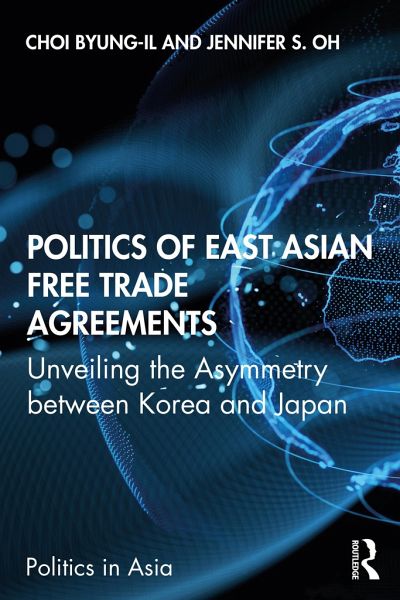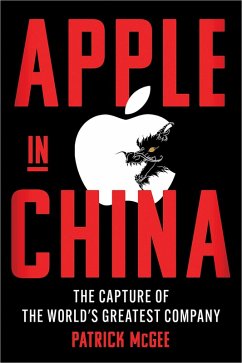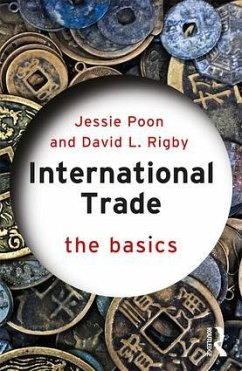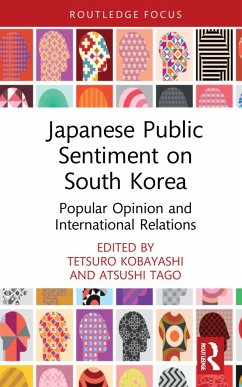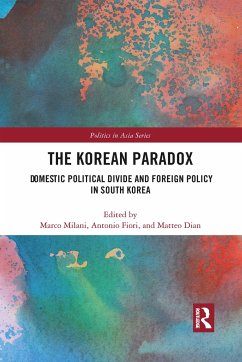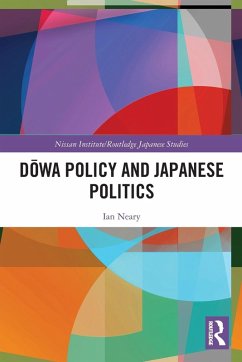Byung-il Choi (South Korea Ewha Womans University)Jennifer S. Oh (South Korea Ewha Womans University)
Broschiertes Buch
Politics of East Asian Free Trade Agreements
Unveiling the Asymmetry between Korea and Japan
Versandkostenfrei!
Versandfertig in 1-2 Wochen
Weitere Ausgaben:

PAYBACK Punkte
26 °P sammeln!




A textbook which explains the evolution of free trade agreements in Japan and South Korea.
Choi Byung-il is professor and the former Dean of the Graduate School of International Studies (GSIS), Ewha Womans University (Seoul, Korea). He is also the President of Korea Foundation for Advanced Studies. Most recently, he was the President of the Korea Economic Research Institute, a think tank representing the Korean business sector. He served leadership positions at several academic associations, including the President of the Korean International Economic Association, President of the Korean Association of Trade and Industry Studies, and President of the Korea Association of Negotiation Studies. He was a member of various advisory councils for the Korean government, including the National Economic Advisory Council for the President of Korea, Trade Negotiations Advisory Council, Inter-Korea Relations Council, and Advisory Council for the Ministry of Foreign Affair and Trade. Prior to joining the Ewha GSIS as a founding faculty, he was the Korean chief negotiator for the WTO basic telecom negotiations (1994-1997). His service in the international area awarded him two medals of excellence from the Korean government. Jennifer S. Oh is an associate professor at the Graduate School of International Studies, Ewha Womans University (Seoul, Korea). She is a political scientist who specializes in comparative political economy and East Asian politics. Her main research areas are the political economy of Japan and Korea, trade politics, agricultural politics, and East Asian democracy. Recent publications cover topics such as FTA politics in Japan and Korea, agricultural reform and farm group politics in Japan and Korea, and Korean social mobilization.
Produktdetails
- Politics in Asia
- Verlag: Taylor & Francis Ltd
- Seitenzahl: 138
- Erscheinungstermin: 23. März 2021
- Englisch
- Abmessung: 234mm x 156mm x 8mm
- Gewicht: 222g
- ISBN-13: 9780367278922
- ISBN-10: 0367278928
- Artikelnr.: 60603269
Herstellerkennzeichnung
Libri GmbH
Europaallee 1
36244 Bad Hersfeld
gpsr@libri.de
Für dieses Produkt wurde noch keine Bewertung abgegeben. Wir würden uns sehr freuen, wenn du die erste Bewertung schreibst!
Eine Bewertung schreiben
Eine Bewertung schreiben
Andere Kunden interessierten sich für



